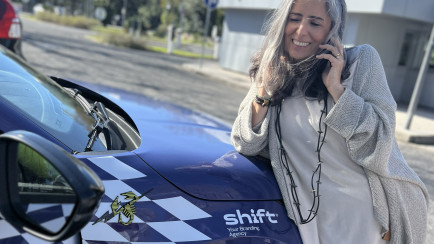A genuine and authentic festival becomes an integral part of the city's identity, giving residents a sense of pride in their culture and traditions.
Carnival is a globally celebrated festival, but in certain cities, it transcends a mere celebration. When effectively promoted and authentically aligned with local identity, Carnival can become a city's very "brand," serving as an icon that attracts tourists, engages the community, and even boosts the economy.
In Portugal, cities such as Torres Vedras, Cabanas do Viriato, Loures, Sesimbra, and Loulé exemplify how Carnival can possess a unique character. These events are not just festive occasions; they are celebrations of local traditions, history, and culture, each offering a distinctive approach to Carnival that contributes to their uniqueness.
For instance, the Carnival of Torres Vedras, known as "the most Portuguese Carnival of Portugal," dates back to the 19th century. It is renowned for its irreverence, humor, and social satire, featuring the famous "corsos" parading through the city's streets. The event is so emblematic that it draws people from various parts of the country and beyond to partake in the festivities. The masks and floats, often satirizing political figures and current events, reinforce the connection between the event and the city's identity.
In Cabanas do Viriato, Carnival reflects the region's cultural roots, with a strong presence of rural cultural elements and local traditions. The festivities and parades are characterized by a deep connection to folklore and traditional dances, making it an authentic celebration and a means of preserving the city's cultural heritage.
Beyond its cultural significance, Carnival has a direct impact on the local economy. The influx of visitors traveling to participate in the festivities generates revenue for local businesses, including hotels, restaurants, and transportation services.
In Loures, Carnival attracts thousands of people annually, with the event gaining more followers each year. During the festivities, residents and merchants seize the opportunity to sell typical products, crafts, and local cuisine, creating a vibrant and dynamic business environment.
Similarly, in Loulé, Carnival provides an opportunity for the city to showcase its best tourist and cultural offerings. The event draws tourists from various parts of Portugal and the world, highlighting the city's historical heritage and unique ambiance, where tradition blends with modernity. The promotion of the event, both nationally and internationally, places Loulé on the map of Carnival destinations and cultural events.
Carnival also serves as a platform for communities to unite and express themselves collectively. In cities like Torres Vedras and Loures, residents actively participate in organizing parades, creating costumes, and engaging in street events. This community involvement strengthens the sense of belonging and promotes social interaction.
This engagement helps solidify Carnival as a genuine and authentic celebration, becoming an integral part of the city's identity and providing residents with a sense of pride in their culture and traditions.
Carnival holds significant potential as a marketing tool for cities. When effectively promoted, it can be used to build a strong and attractive brand, both nationally and internationally.
Torres Vedras stands as an excellent example of this. The city has successfully transformed its Carnival into a true brand, with an appeal that extends beyond regional boundaries. The event is widely publicized, utilizing irreverence and humor as key elements of its identity. This effective marketing not only attracts tourists but also solidifies Torres Vedras' position as one of Portugal's premier Carnival destinations.
Similarly, in Loulé, Carnival is promoted as an event that reflects the region's cultural diversity, combining elements from different Carnival traditions and offering visitors a unique experience.
In Sesimbra, Carnival has adopted aspects reminiscent of Brazilian festivities, including the creation of samba schools, reflecting the spirit of the Atlantic's other side. Other cities, such as Olinda and Funchal, also utilize Carnival to promote their identities, with these festivals becoming internationally recognized cultural events.
In summary, Carnival, when authentically integrated into a city's identity and effectively promoted, can transcend its role as a mere festival to become a powerful branding tool. It fosters community engagement, stimulates economic activity, and enhances cultural pride, contributing to the city's unique identity and appeal.
Este artigo foi publicado no Sapo.

In the latest edition of Meios & Publicidade, Ricardo Pinto Correia, Head Designer at Shift, shares an article that challenges the way we think about branding in...

Dubai Chocolate, the global phenomenon of the moment, quickly conquered the world and all it took was a post on TikTok showing an influencer's experience with the produc...

Shift is the branding agency that doesn’t leave your brand in someone else’s hands. Now that a new edition of the Eco Rally is kicking off, its partnership with World Shopper...
